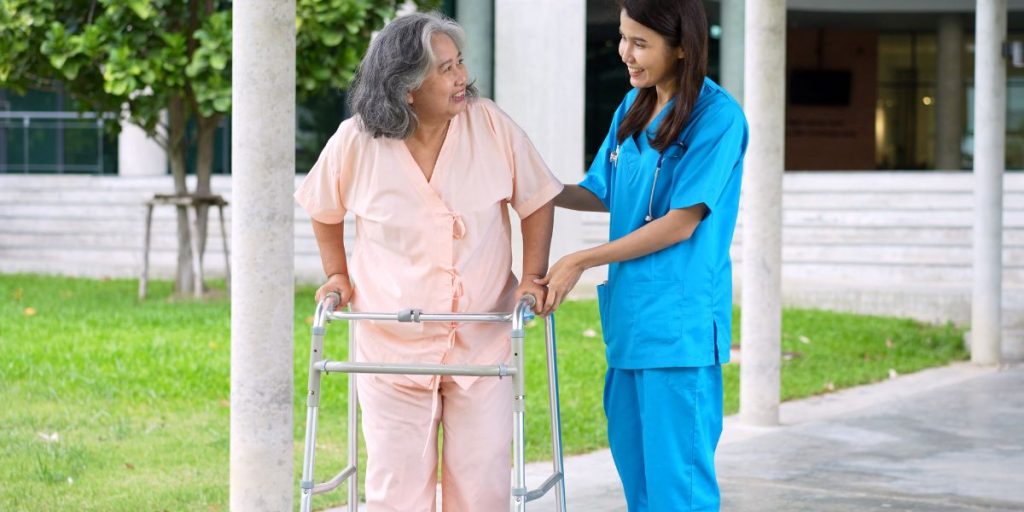Regular health check-ups for elderly persons are important due to the unique health challenges they face as they age. help in the early detection, management, and prevention of age-related health conditions. Here are several key reasons that highlight their importance:
1 Early Detection of Health Issues
Many diseases common in older adults, such as heart disease, diabetes, and certain cancers, may not show symptoms until they are advanced. Routine check-ups can help identify these issues early, leading to timely interventions and better health outcomes.
2 Management of Chronic Conditions
Older adults often have chronic health issues that require ongoing management. Regular visits allow healthcare providers to monitor these conditions, adjust treatments, and ensure the effectiveness of medications.
3 Preventive Care
Regular health Check-ups for elderly persons include preventive screenings (e.g., for cholesterol, blood pressure, and cancers) and vaccinations (e.g., flu, pneumonia). These measures are crucial for preventing serious health complications.
4 Mental Health Assessments
Mental health concerns, including depression and cognitive decline, are prevalent in older adults. Regular check-ups can help identify these issues early and provide necessary interventions or referrals.
Essential Tips for Regular Health Check-ups for Elderly Persons
1 Schedule Regular Appointments
Frequency: Aim for check-ups at least once a year, or more frequently if there are existing health conditions.
Reminder System: Use calendars, alarms, or reminders to keep track of appointments.
2 Prepare a Health History
Document Previous Conditions: Keep a record of past and current medical conditions, medications, allergies, and surgeries.
Update Information: Ensure that the health history is updated before each appointment.
3 List Current Medications
Medication Review: Bring a complete list of medications, including over-the-counter drugs and supplements, to discuss potential interactions and side effects.
4 Bring a Companion
Support: Have a family member or friend accompany the elderly person to help with communication and to remember important details.
Advantages of Regular Health Check-ups for Seniors
1 Early Detection of Health Issues
Regular screenings can identify potential health problems early, allowing for timely intervention and treatment. Conditions like hypertension, diabetes, and certain cancers can often be managed more effectively when caught early.
2 Monitoring Chronic Conditions
For seniors with chronic illnesses, regular check-ups enable healthcare providers to monitor the condition’s progress, adjust medications, and implement necessary lifestyle changes.
3 Preventive Care
Regular health Check-ups for elderly often include vaccinations and screenings that help prevent illnesses or complications, such as flu shots or screenings for osteoporosis and heart disease.
4 Medication Management
As seniors often take multiple medications, regular visits allow healthcare providers to review prescriptions, avoid dangerous drug interactions, and adjust dosages as needed.
5 Promotes a Healthy Lifestyle
Regular visits encourage discussions about nutrition, physical activity, and mental well-being, helping seniors adopt healthier habits.
Key Points of Senior Medical Examinations
1 Comprehensive Health Assessment
Medical History: Review of past and current health conditions, medications, allergies, and family medical history.
Physical Examination: Assessment of vital signs, weight, height, and overall physical condition.
2 Cognitive Assessment
Mental Status Evaluation: Tests for memory, attention, and problem-solving skills to identify cognitive decline or dementia.
3 Functional Assessment
Activities of Daily Living (ADLs): Evaluation of the individual’s ability to perform daily tasks (e.g., dressing, bathing, eating).
Instrumental Activities of Daily Living (IADLs): Assessment of more complex tasks (e.g., managing finances, medication management).
4 Preventive Health Measures
Screenings: Regular screenings for conditions like hypertension, diabetes, cholesterol levels, and cancer (e.g., mammograms, colonoscopies).
Vaccinations: Ensuring vaccinations are up to date, including flu, pneumonia, and shingles vaccines.
Overcoming Challenges to Regular Health Check-ups for Seniors
Challenges
Many seniors have difficulty travelling to medical appointments due to mobility issues or lack of transportation.
1 Mobility Issues
Solution
Provide telehealth services for consultations.
Organize community transport services or volunteer driver programs
2 Cognitive Decline
Memory problems or cognitive decline can make it challenging for seniors to remember appointments or understand the importance of regular health check-ups for elderly persons.
Solution
Utilize reminders through phone calls, texts, or apps.
Involve family members or caregivers to help schedule and remind seniors about appointments
3 Financial Barriers
High medical costs or lack of insurance can deter seniors from seeking regular health check-ups.
Solution
Provide information about low-cost or free clinics.
Assist with navigating insurance options or financial aid programs.
Conclusion
Kritihealthcare Services enables proactive health management, leading to better health outcomes and a greater sense of well-being.

